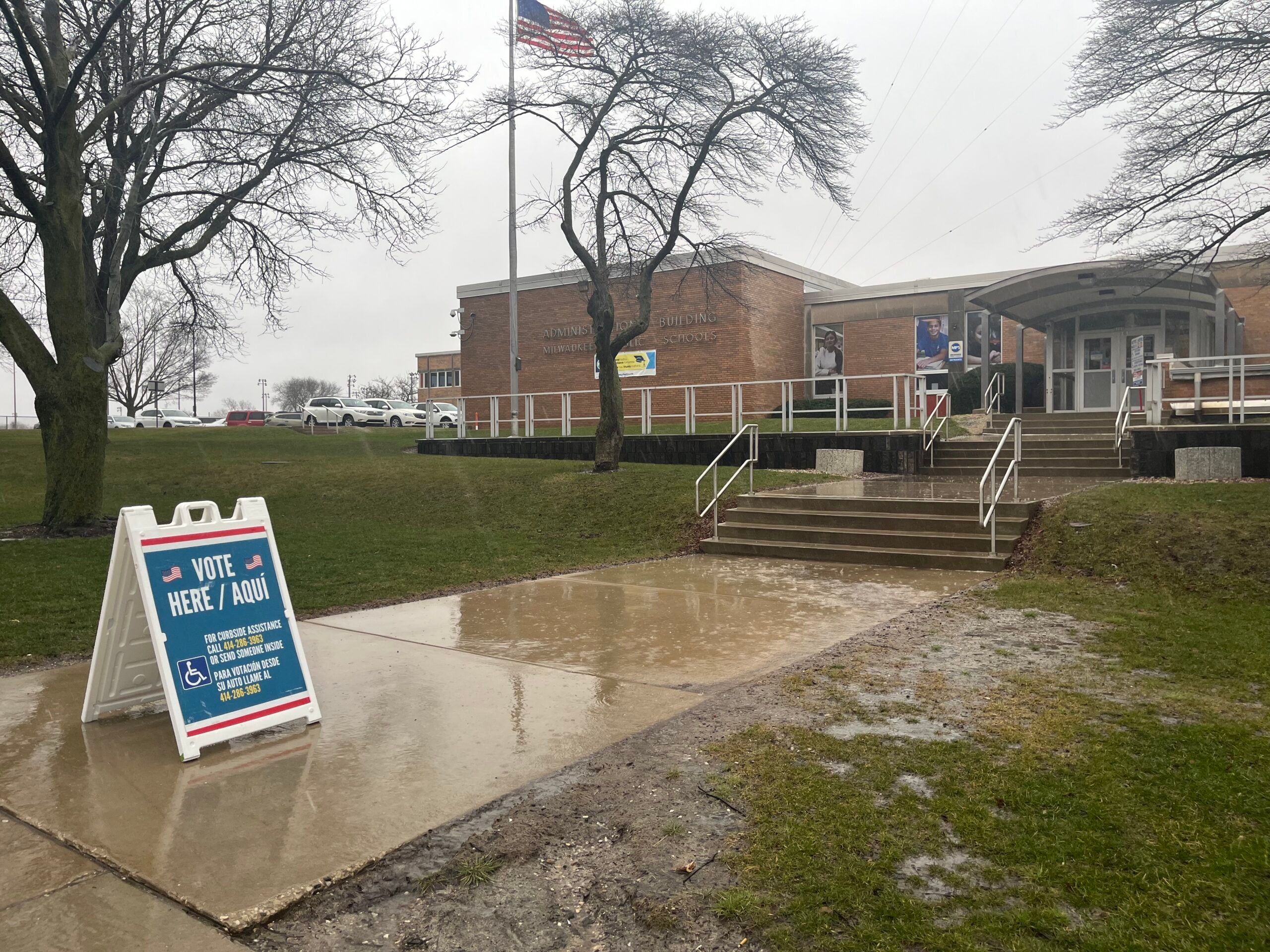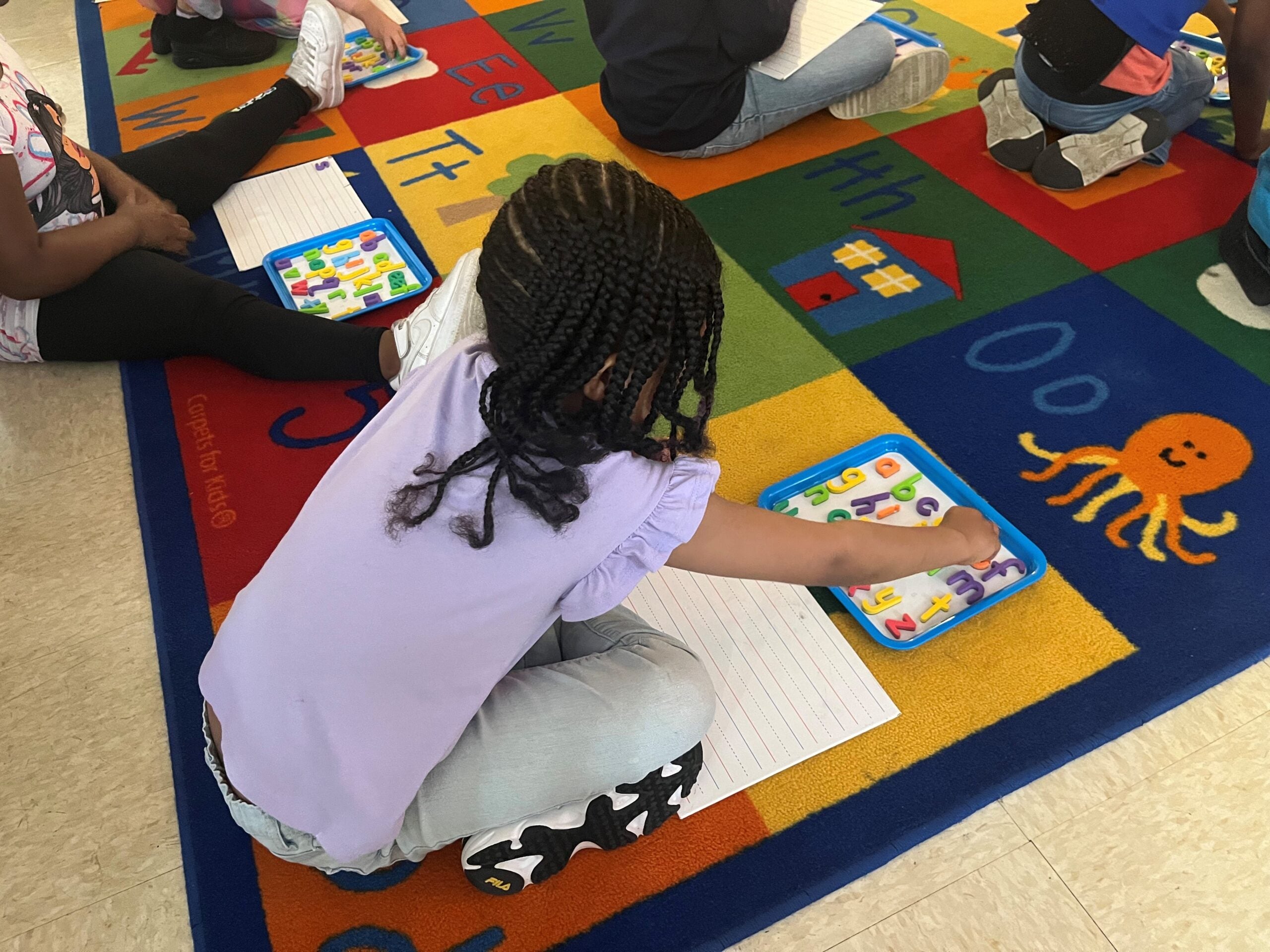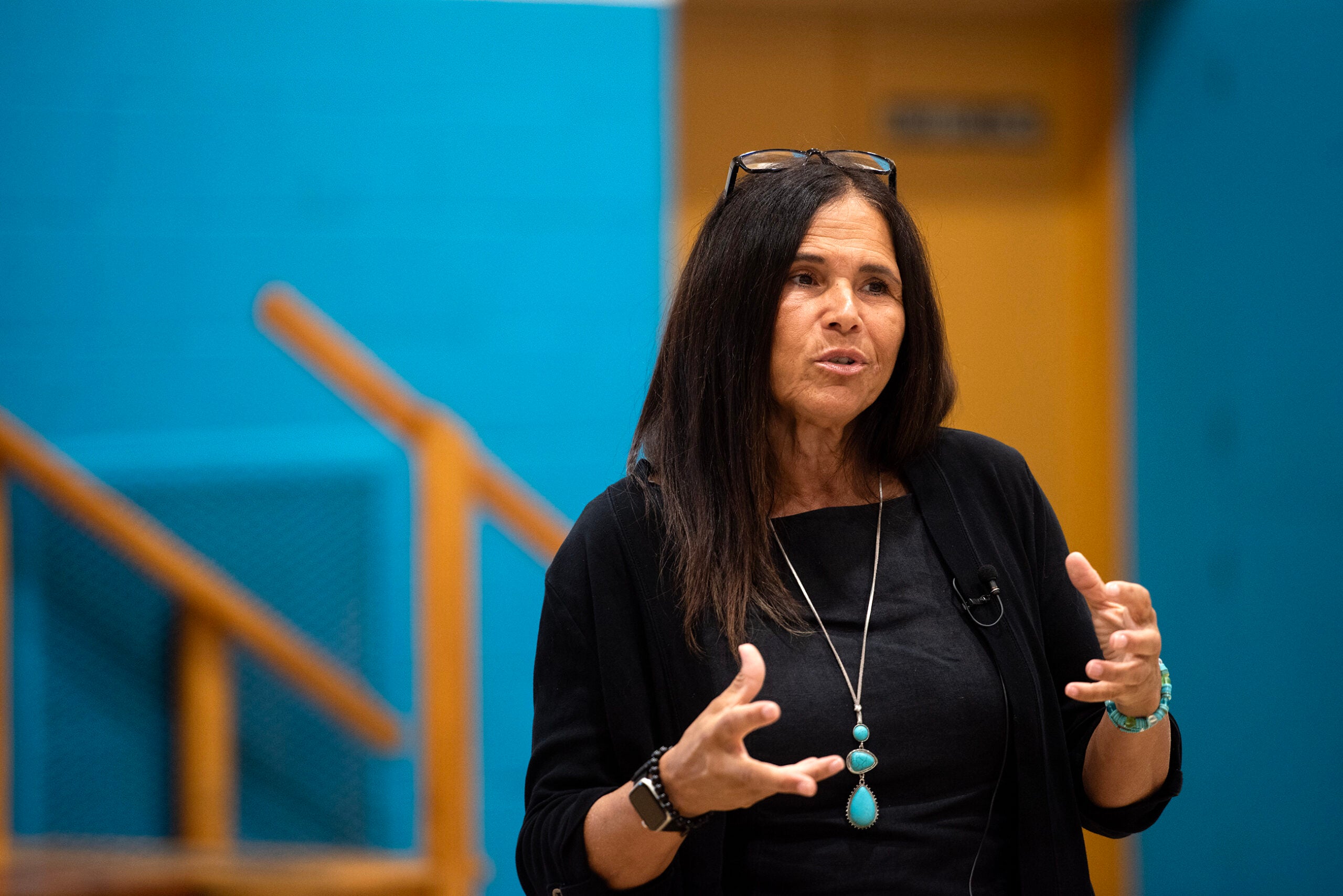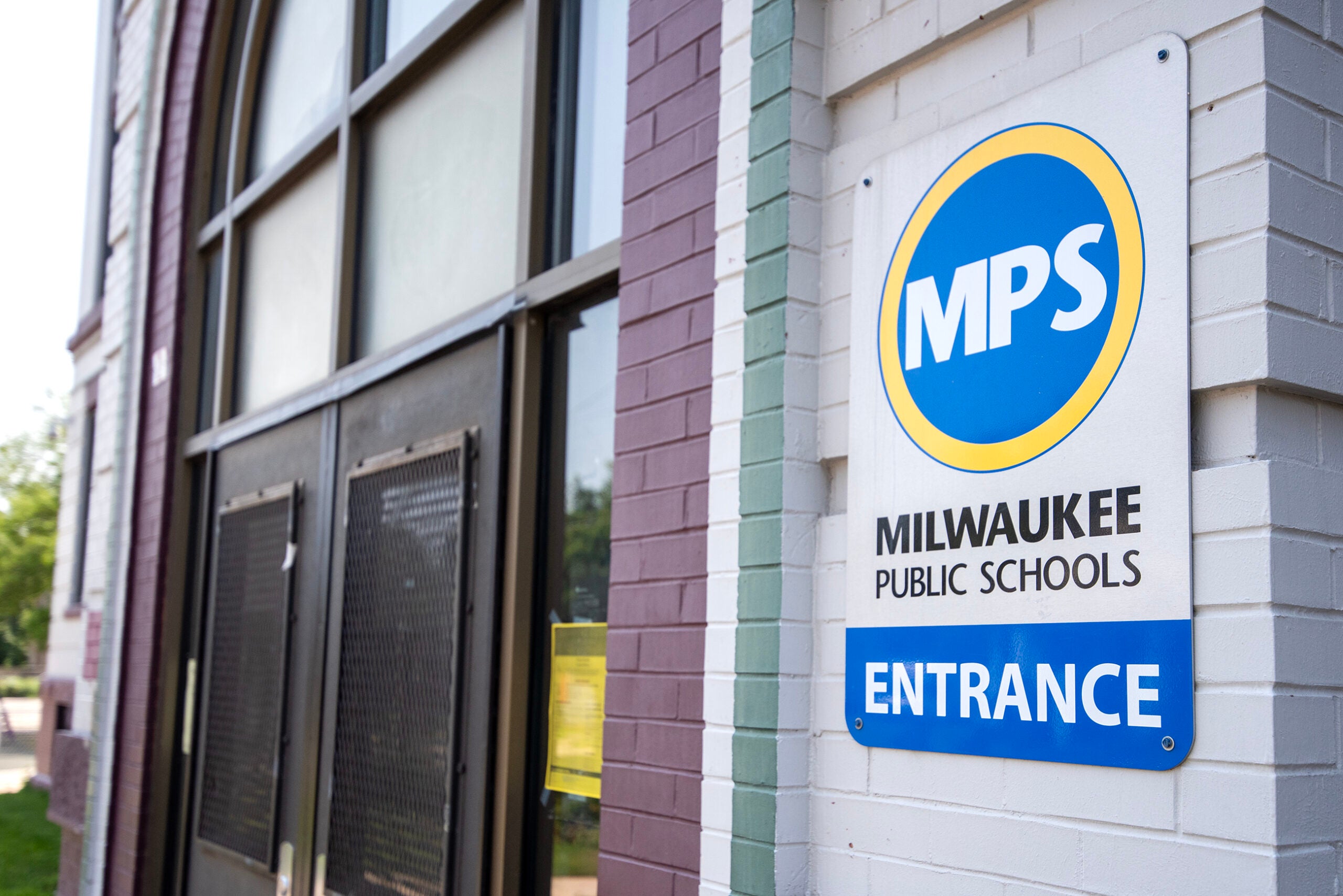With a margin of just 1,720 votes, Milwaukee Public Schools’ $252 million referendum was narrowly approved on Tuesday.
For weeks, district officials have said they’ll have to make drastic cuts without the boost in taxpayer money, as they face a $200 million deficit next school year.
Milwaukee voters approved the referendum 51 percent to 49 percent, according to unofficial results. Approval means a $432 tax increase for the owner of a $200,000 home.
News with a little more humanity
WPR’s “Wisconsin Today” newsletter keeps you connected to the state you love without feeling overwhelmed. No paywall. No agenda. No corporate filter.
MPS told school principals to plan for 13 percent budget cuts and centralized offices to plan for 26 percent cuts if the referendum had failed.
Superintendent Keith Posley said the vote was a “huge victory” for the children of Milwaukee.
“MPS is grateful to the city’s voters for supporting our continued efforts to help students succeed in school and in life,” Posley said in a statement.
In an interview Sunday with WISN-12, Posley said the district had prepared a “no” referendum budget and a “yes” referendum budget.
“And in the no referendum budget, there’s major cuts,” Posley said, adding those cuts could include elimination of art, music and gym classes as well as increasing classroom sizes.
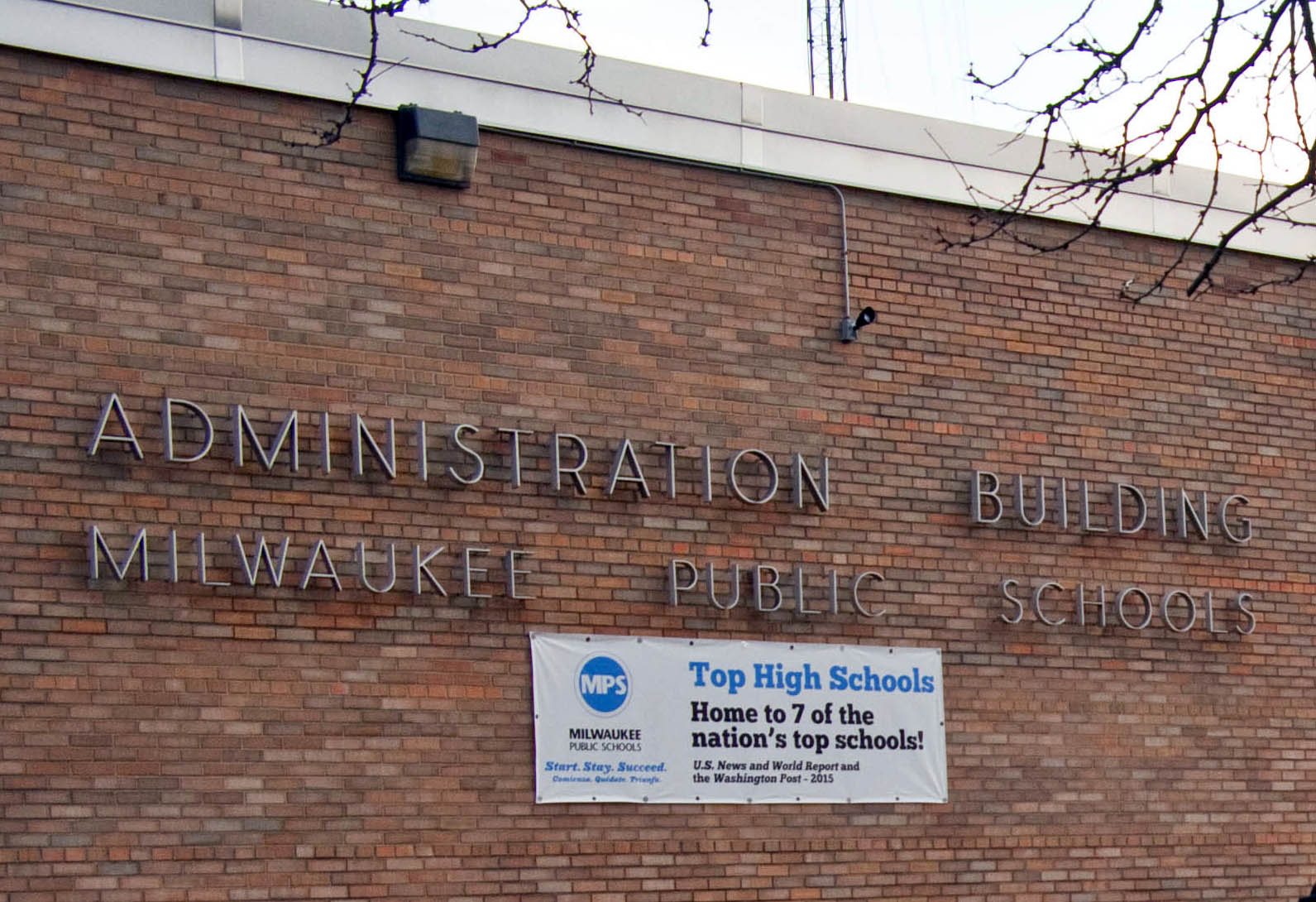
This year’s referendum ask by MPS was a heavier lift than the funding request four years ago. In 2020, voters overwhelmingly approved an $87 million referendum.
This call for more funding — nearly triple the 2020 request — brought out heavy opposition from civic leaders and business groups, including the Greater Milwaukee Committee and the Milwaukee Metropolitan Chamber of Commerce. MMAC spent weeks and more than $400,000 opposing the referendum.
On Wednesday, MMAC released a statement saying now that the referendum has passed, it’s vital Milwaukee schools use the money to improve student outcomes.
“The MPS plan must be transparent and bold. The status quo is unacceptable and a strategic plan to better equip MPS students for the workforce of tomorrow is essential,” the MMAC statement says. “Our community, its families and, most importantly, our children deserve public schools that set students up to succeed.”
The “Vote Yes for MPS” campaign, which was funded by the teachers union and other public schools supporters, spent about $277,000, according to campaign finance reports.
Milwaukee Teachers’ Education Association President Ingrid Walker-Henry issued a statement saying Milwaukee voters sent a message that they will do what it takes to ensure children have access to equitable opportunities.
“MPS students deserve access to certified art, music, and physical education teachers and school libraries and librarians,” Walker-Henry said in a statement. “That we will have competitive salaries that retain the best teachers, paraprofessionals and critical staff for our students.”
There are many reasons why MPS is facing a $200 million budget deficit next school year. State funding for schools has not kept pace with inflation. MPS has also had declining enrollment, which cuts the amount of money the district receives. Only about half of the children living in Milwaukee attend Milwaukee Public Schools.
School districts across Wisconsin are putting together their 2025 budgets without federal COVID-19 relief dollars that will expire in September.
MPS not alone in seeking taxpayer relief
Since 2016, school districts have increasingly turned to referenda asking voters to increase local property taxes beyond their revenue limits.
On Tuesday, 91 local school district referendums were on the ballot in 85 districts. Of those, 61 asked to increase the district’s revenue limit while 30 were asking voters for approval to issue bonds for major construction, remodeling or maintenance projects for school facilities.
Without counting referendums already decided on the February ballot or upcoming referendum questions planned for the November ballot, the 91 questions asked Tuesday surpasses the total number of school referendums last year, according to the Wisconsin Association of School Boards.
Wisconsin Public Radio, © Copyright 2026, Board of Regents of the University of Wisconsin System and Wisconsin Educational Communications Board.

